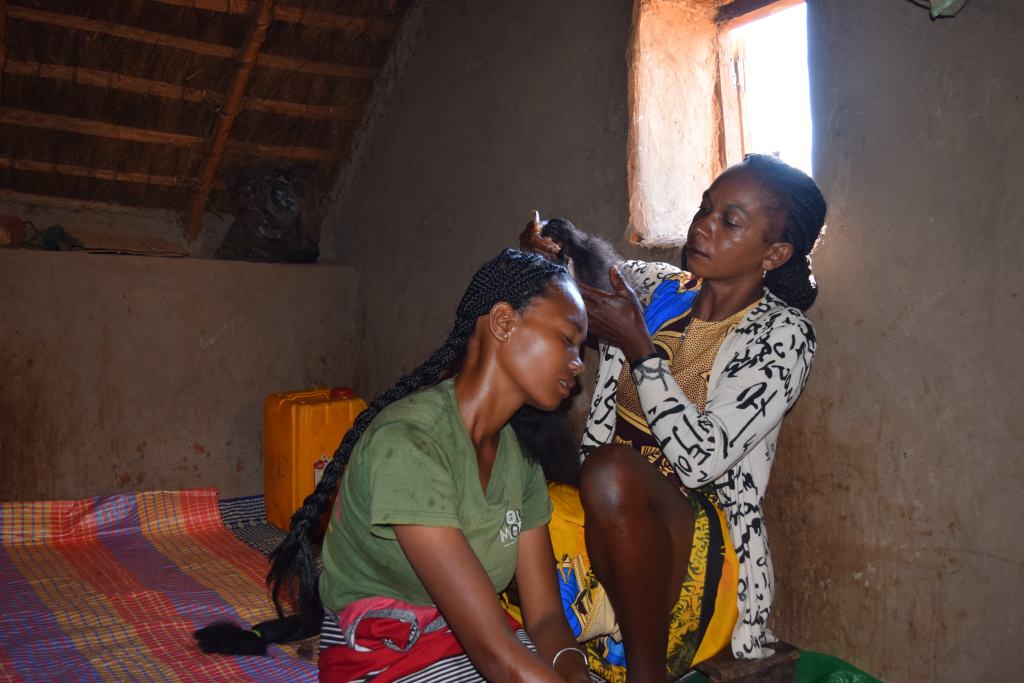
When my host sister’s family argued over her dowry on her wedding day last month, it seemed like a simple formality.
Only hours before, Fanja and her husband, Julien, had stood in the commune office, signed their marriage certificate in front of a couple dozen friends, family and local officials, and shared a modest kiss.
In a legal sense, the marriage was complete. But local custom dictated more.
In the Ambalavao area of Madagascar, people practice a traditional marriage ritual called tandravady. It’s an elaborate, expensive occasion that looks nothing at all like a wedding ceremony in the U.S.
From the contents of the dowry to the length of time needed to braid the bride’s hair, it’s a true Malagasy tradition carefully cultivated over generations.
Registering a marriage with the government is cheap and easy. But in the eyes of the community, the tandravady has more weight.
Three hundred and thirty-five items, 466,600 ariary, and a cow — that’s the extraordinary sum Fanja’s family agreed to pay to finalize her marriage. The number of items and the money are often hotly debated by the families of the bride and groom; the cow, however, is nonnegotiable.
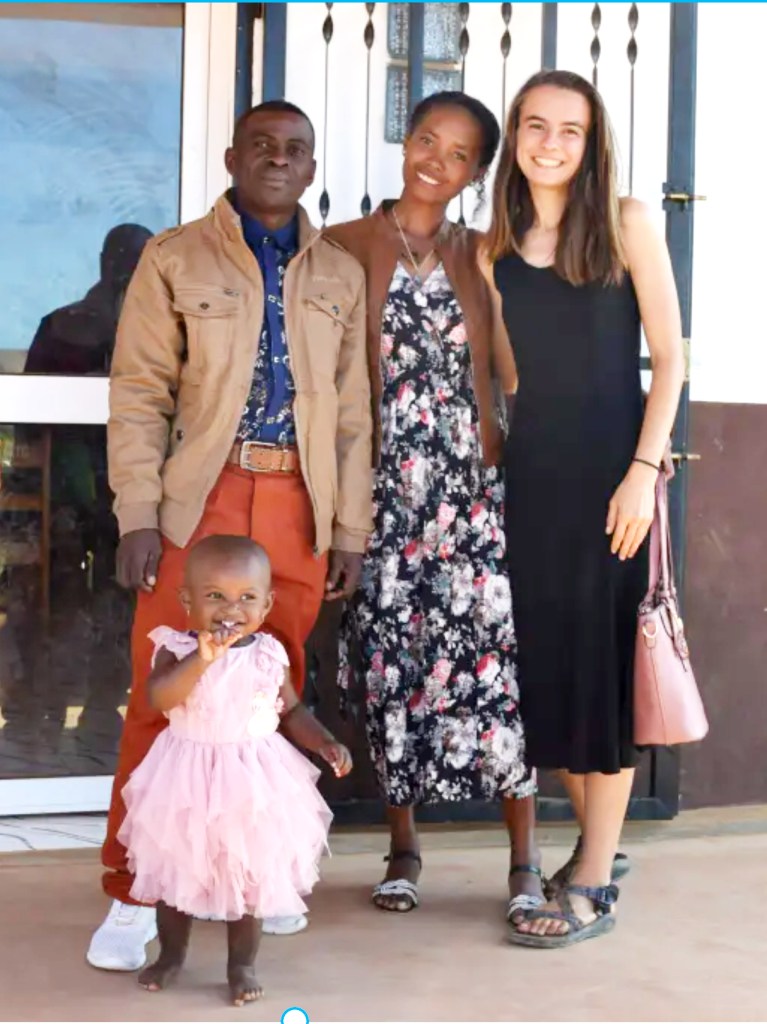
Traditionally, Fanja’s father would be the one responsible for paying her dowry. But he died by lightning strike when Fanja was 3 years old, and so the responsibility fell to her oldest brother.
Unfortunately, her older brother had neither the money nor the cow to give. If Fanja and her husband wanted to complete their marriage, they knew they would have to raise the money needed for the dowry themselves.
Although 466,600 is equivalent to only about $100, because of the economy in Madagascar, it took Fanja and her husband two years to save enough for their tandravady. When they finally had the money in hand, the first thing Fanja and I did was visit a Malagasy witch, known here as an ombiasa.
Ombiasas plays a significant role in rural Malagasy life. Believed to have been given divine powers, an ombiasa is consulted when people fall ill, and for advice on where new homes should be built, and to determine the date of significant life events.
In this case, we walked nearly two hours to ask the ombiasa for the best wedding date in June. Ultimately, the ombiasa chose June 12.
With just three weeks to go until the wedding, Fanja and her husband set out to inform friends and family, and start gathering the necessary supplies.
The day before the wedding, I was shocked to see Fanja, her husband, and a few other family members pull up to our village in a minibus with a tall heap of goods piled on top.
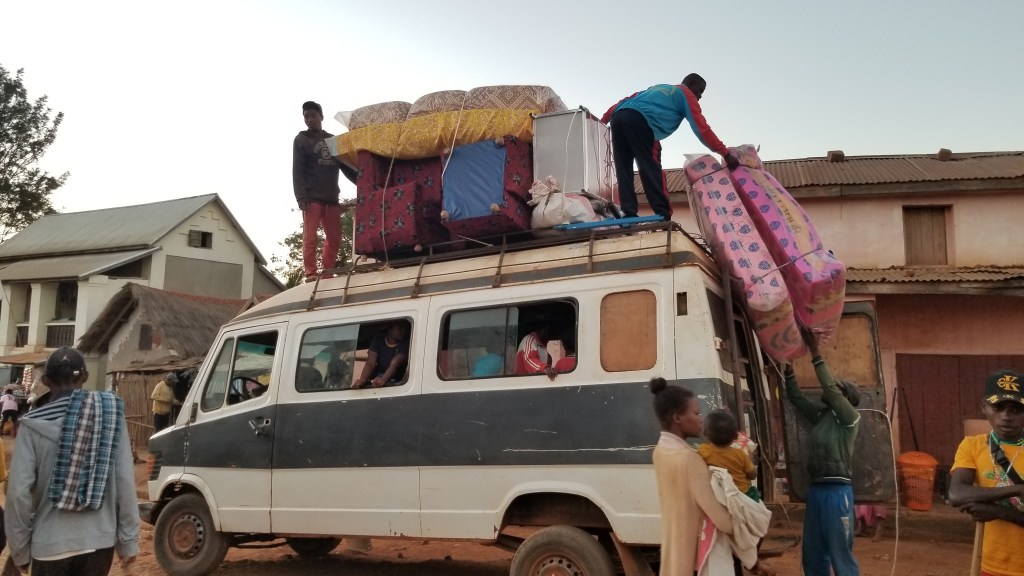
There was a bed frame and a mattress. A sofa set. A cabinet. A coffee table. Buckets. Raffia baskets and raffia mats. More, too, I’m sure.
All of these items were to be part of Fanja’s dowry. Later, I learned that some things would go to her husband’s parents, but most, including the most expensive purchases, would go to Fanja’s home.
Once the legal wedding ceremony was complete, Fanja and her husband separated. He went to his parents’ home to wait for Fanja, and Fanja went home to her village to prepare.
While her older brother finalized the details of her dowry, Fanja sat for more than three hours to have her hair braided. When it was finished, she put on a pink, handmade dress and draped a traditional handwoven cloth around her shoulders.
Many of us then gathered in Fanja’s relative’s home to pray. The man leading the prayer offered blessings for Fanja’s marriage, and then we prepared to leave.
Fanja’s dowry was loaded onto a minivan and a few people, including Fanja and myself, climbed in and left for Julien’s village. Fanja’s family remained behind to party without her.
Night had already fallen when we arrived. We climbed to the top floor of the house where Julien and his family were waiting.
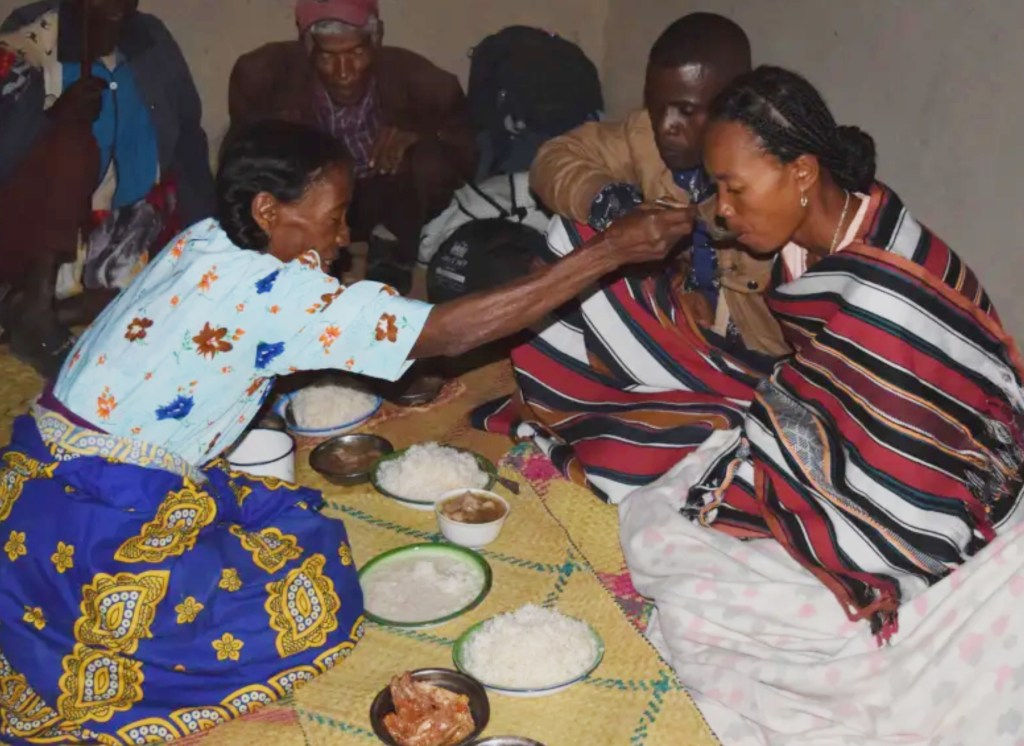
When food was served, Julien’s mother fed Fanja and Julien rice seven times each, alternating between the two. It’s tradition, Fanja tells me, but she doesn’t know the significance of it. Likewise, the number seven is sacred in Malagasy tradition, but no one has been able to explain why.
Later, Fanja and Julien sat together as Julien’s father flung water on them seven times. It’s a blessing, one not just reserved for weddings. When my little host sister, Tahiry, traveled with me to South Africa, her grandfather did the same to her before leaving.
By the time food was finished, it was 11 p.m. I decided to sleep, anticipating an early wake-up and a long walk in the morning. While I slept, Malagasy music blasted from speakers we had brought, and people began to dance.
Tahiry and I left early the next morning. She had final exams that week, and she needed to be at school by 7 a.m. to take her last two exams.
Fanja and Julien stayed at his parents home for two more days, handing out the items they had brought and receiving relationship advice from her in-laws.
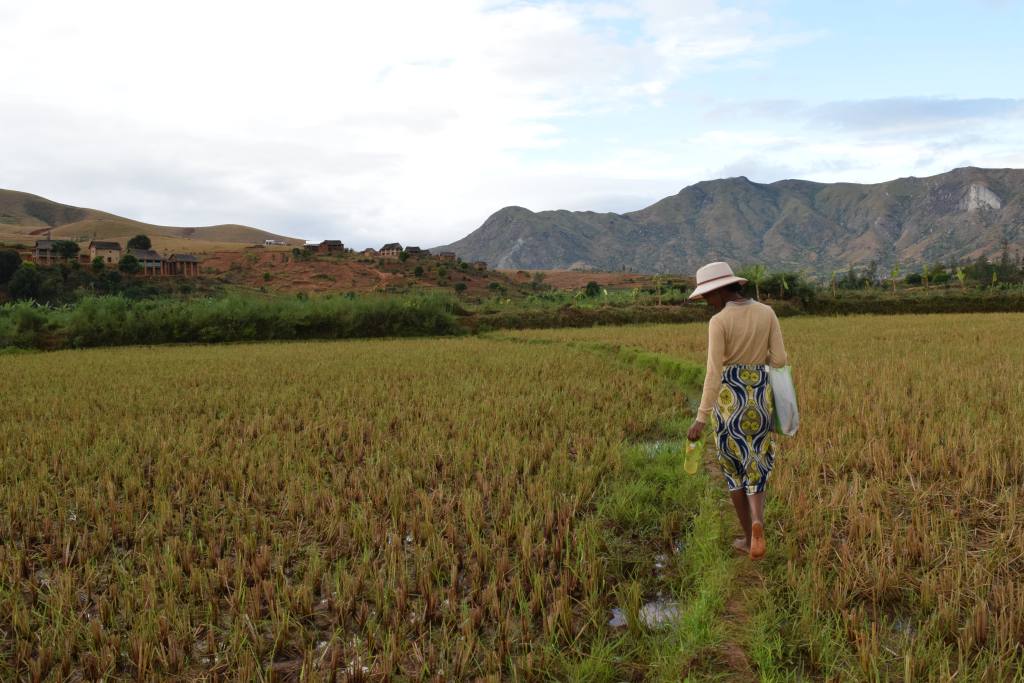
A reader asked:
What was your favorite part about being home in the U.S.? — Anonymous, Oxford
The best part was seeing my friends, family and former Sun Journal colleagues, of course! Eating cheese every day was great, too. But perhaps the most comforting thing was being able to blend in. It’s hard to describe just how alienating it feels to always stick out here in Madagascar. It was truly wonderful to be able to walk outside, go shopping and eat out without being the center of attention.
Have a question? Send it to [email protected] or by mail to the Sun Journal at 64 Lisbon St., Suite 201, Lewiston, ME 04240.
On a personal note:
I’m back in Madagascar now, and it feels as if I never left. Perhaps the biggest difference is knowing how close I am to the end of service in November. Things are moving quickly, and I’m trying to enjoy the time I have left. In good news, Fanja’s baby, Farantsa, has grown into an adorable, chubby 18-month-old toddler. We love to quiz her on little things, like asking her where her head, eyes and ears are. She knows how to bring dishes to the kitchen and grab the broom when asked. Potty training, however, is still a work in progress. Still, it’s clear to both of us that her development is far ahead of many of the other 18-month-old babies here. She’s living proof of the difference good nutrition can make.
Vanessa Paolella is a Peace Corps volunteer in Madagascar, a former staff writer for the Sun Journal and a Bates College graduate. The views expressed in this column are hers alone and do not reflect the views of the U.S. government, the Peace Corps, or the Madagascar government.
We invite you to add your comments. We encourage a thoughtful exchange of ideas and information on this website. By joining the conversation, you are agreeing to our commenting policy and terms of use. More information is found on our FAQs. You can modify your screen name here.
Comments are managed by our staff during regular business hours Monday through Friday as well as limited hours on Saturday and Sunday. Comments held for moderation outside of those hours may take longer to approve.
Join the Conversation
Please sign into your Sun Journal account to participate in conversations below. If you do not have an account, you can register or subscribe. Questions? Please see our FAQs.